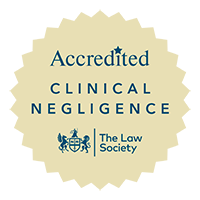Top ranked cerebral palsy claims lawyers
Boyes Turner’s specialist cerebral palsy lawyers have secured an admission of liability for a teenage boy who suffered brain damage at birth. The claimant has cerebral palsy with four limb dystonia, severe learning difficulties and communication problems. He will require life-long care.
Towards the end of her pregnancy the claimant’s mother attended hospital in the early stages of labour. The admission cardiotocograph (CTG) trace of the fetal heart rate was normal, indicating that the baby was well. The next morning, whilst still in hospital, the mother’s waters broke. She remained in hospital for a further day. On the third day, efforts were made to speed up the labour by starting a syntocinon drip, to stimulate the uterus. By early evening, the contractions were becoming more frequent, the syntocinon was further increased and the claimant’s mother requested an epidural for pain relief. During the lengthy attempts to site the epidural there was no evidence of any monitoring of the fetal heart rate, but with the epidural in place, the CTG was recommenced and was normal.
The midwife left the claimant’s mother unattended for a few minutes during which she began to feel the urge to push. She pressed the call button and the midwife returned to find that she was fully dilated but the CTG transducer was not picking up the fetal heart and the mother had suffered a loss of blood. The midwife could not find the fetal heart, called a senior colleague and asked her to get a fetal scalp electrode (which monitors the fetal heart rate by being attached directly to the baby’s head). She also asked her to call the registrar. Her colleague returned with the fetal scalp electrode but having failed to call the registrar for help. Monitoring by fetal scalp electrode revealed a fetal heart rate bradycardia (the baby’s heart rate was far too low). The midwife called the registrar who arrived and immediately carried out a forceps delivery.
The claimant was born in poor condition requiring resuscitation before his heart was restarted and the oxygen supply to his brain restored. In the time between the senior midwife failing to call the registrar for help and the eventual delivery (and effective resuscitation) 50 minutes later, the baby had suffered irreversible brain damage from an acute period of hypoxia (lack of oxygen). Despite resuscitation at birth, the claimant was left with permanent brain damage.
Boyes Turner’s medical experts advised that the claimant’s brain was damaged within the final five minutes of his mother’s labour. If he had been delivered just a few minutes earlier he would have survived without permanent injury. The medical experts were critical of the time it took between the midwife recognising that the fetal heart rate was not being recorded and eventual delivery believing that with proper care delivery should have been achieved at least ten minutes earlier.
When the claimant was approaching his teens, the claimant’s parents contacted Boyes Turner and asked us to help them with a claim. Boyes Turner’s cerebral palsy specialists team applied for Legal Aid for the claimant, investigated the events surrounding his birth and served proceedings on the defendant hospital. The defendant served a defence which admitted ten minutes of negligent delay in delivery of the claimant.
However, having admitted that there was negligence in the care that was provided to the claimant during his mother’s labour, the defendant hospital maintained its defensive position in relation to the cause of the injury. The defendant did not accept that brain injury had been caused during the last few minutes of labour and requested that the claimant’s family should agree to him undergoing an MRI scan which might reveal other potential causes of his brain damage. The family and Boyes Turner’s lawyers refused to subject the disabled claimant to an MRI scan, which would have required him to undergo a general anaesthetic, as there was sufficient clinical evidence to prove, on the balance of probabilities, that his brain injury was caused by the negligent delays in his delivery. Under pressure to disclose expert evidence which would justify their continuing defence of the claim, the defendant hospital finally made a full admission of liability.
Boyes Turner are now arranging for judgment to be entered and will seek an interim payment of damages to provide for the claimant’s urgent needs whilst we work with experts to value the claim.
They have a great deal of knowledge and expertise, and client care seems to be their top priority.
Chambers Guide to the Legal Profession
Contact our expert Cerebral Palsy solicitors today for support with your claim




